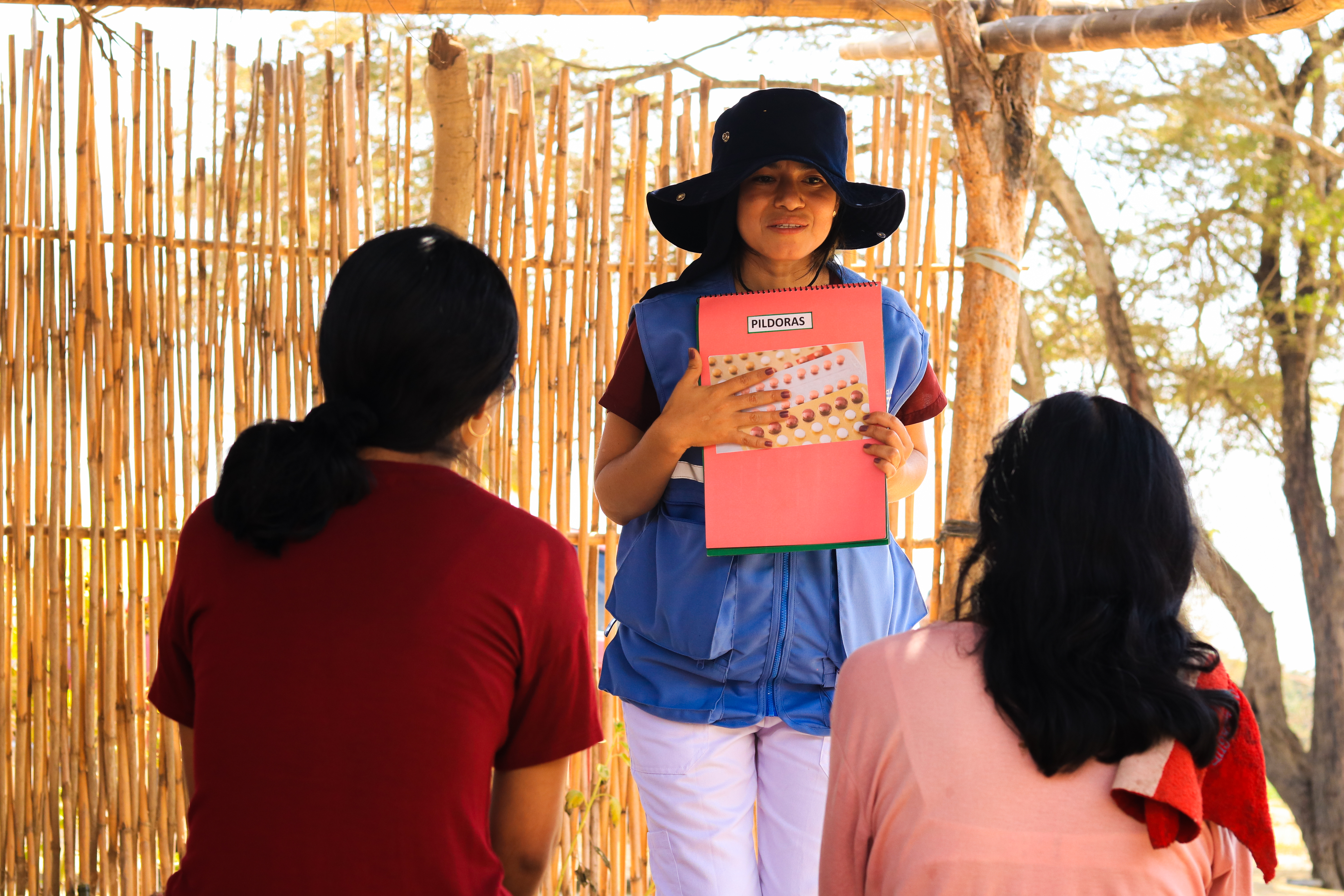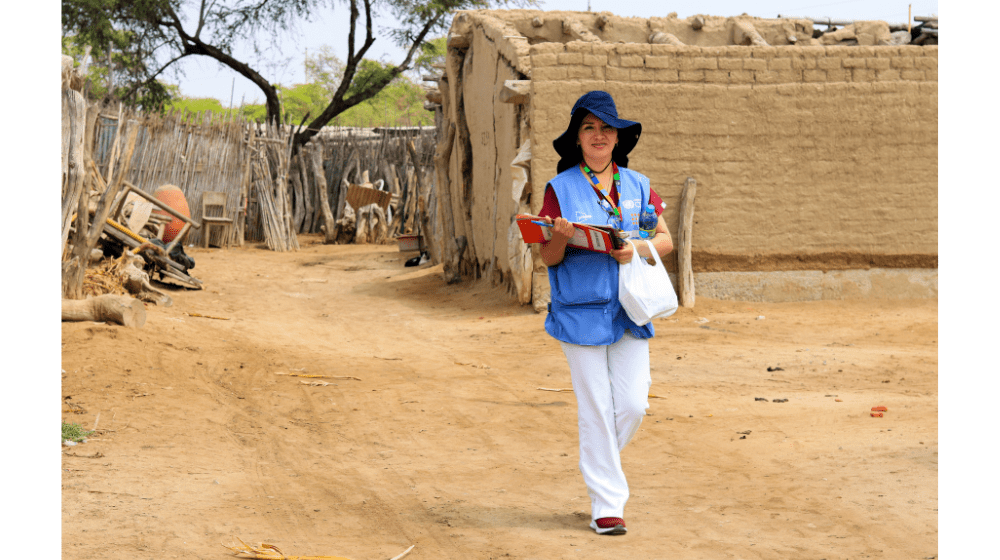The department of Lambayeque, in northern Peru, bore the brunt of Cyclone Yaku in the first half of 2023. As a consequence, towns and hamlets were cut off by heavy rains and river overflows, leaving hundreds of communities stranded and isolated. They were deprived of the right to access vital healthcare services, especially women and adolescents.
In this critical reality, access to sexual and reproductive health services for women became a matter of life or death. The threat of increased maternal morbidity and mortality echoed through the affected areas, where the presence and access to healthcare centers were very limited, if not nonexistent. In response, the "Salvando Vidas" project deployed brigades in Lambayeque, Piura, and Tumbes with a mission to identify and provide essential services to vulnerable individuals affected by the climate crisis and who need support now more than ever.
At the heart of this effort is obstetrician Sara Dioses, one of the brigade members of the "Salvando Vidas" sexual and reproductive health service project by UNFPA in partnership with Prisma, in the Lambayeque region. Each of these brigades working in Tumbes, Piura, and Lambayeque consists of three obstetricians, all of whom live and have worked in the areas they now cover as part of the project.
Sara leaves her home in Chiclayo early in the morning to join her colleagues on a journey through rain-affected peri-urban and rural areas, reaching out to women and adolescents in urgent need of these life-saving services.
Her daily visits to Chiclayo, Mórrope, Túcume, Olmos, and their various hamlets have allowed her to share and understand the diverse realities that many women face, each with their unique stories.
"Every day, we face many challenges, from the shortage of supplies in healthcare centers to the scorching sun, the dogs that greet us at every home, and the crime that lurks in high-risk areas, which we have attended to because there are women who need our services," Sara comments during a moment of rest in her routine.
For Sara, reaching each home and providing information about sexual and reproductive health services is a great satisfaction. It can be the precise moment when a woman is waiting for a glimmer of hope that allows her to take action or make decisions in her life. Many of them are unaware of their rights and the institutions that can assist them, especially in a state of emergency.
"As a brigade member and obstetrician, I not only bring sexual and reproductive health services but also the necessary information for women to become aware of their rights and make decisions for themselves. In many areas, there is still a strong presence of machismo, and women tend to be submissive to their partners. It's essential for women to empower themselves and make their own choices."
The different cases Sara encounters in her daily work and the challenges she faces have been the driving force to continue bringing a ray of hope to every woman she visits.

Funds from CERF to Save Lives and Leave No One Behind
UNFPA in Peru has received funding from the United Nations Central Emergency Response Fund (CERF) to ensure sexual and reproductive health services and protection for women and adolescents affected by the floods in the northern part of the country. Among the planned actions are the strengthening of primary care, monitoring of pregnancies, and access to family planning services through sexual and reproductive health kits in healthcare facilities.
Learn more about the project: https://peru.unfpa.org/es/salvando-vidas-peru-cerf


